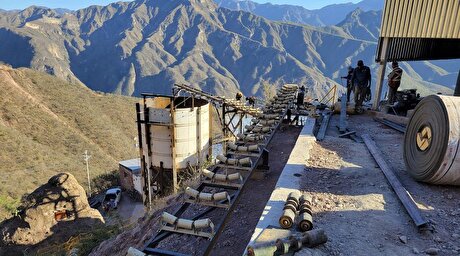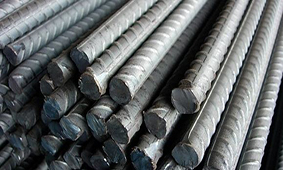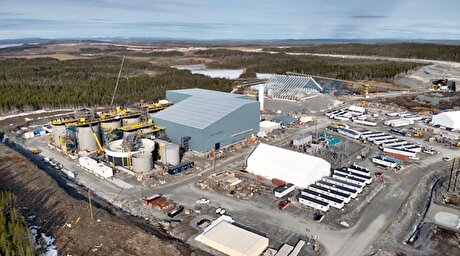
Turkish mills retain suitable scrap-rebar margin

The spread between the ArgusHMS1/2 80:20 cfr Turkey and fob Turkey rebar assessments fell to $148.20/t yesterday, as rebar prices continued to lag the rapid upturn in scrap prices over the past two weeks.
The narrowness of the spread is well below the $170/t that is considered the optimum minimum price for Turkish mills to achieve satisfactory margins on steel sales. This has fuelled sentiment that the current scrap price trend is not sustainable based on the relative weakness of rebar prices, even when taking into account added support that scrap has received from a much stronger flats product market.
But the current spread does not reflect the actual spreads Turkish mills have been achieving for rebar sales throughout the past month. This is because current rebar sales are being predominantly sourced from scrap purchased at prices up to $40/t lower than the level at which deals have taken place this week.
Turkish steelmakers undertook a prolonged period of strong deep-sea scrap restocking in October, when they purchased large volumes for November shipment. The restocking was originally viewed partially as a strategy to ensure mills did not get short when availability tightened in January and February, but in retrospect it now seems that steelmakers were actively anticipating a recovery in export and domestic steel demand in November and December.
Some traders this week said one or two mills sought to regain scrap-rebar margins after seeing recovery in steel demand as early as the second week of October. This allowed them to stock up on scrap when the price was low and then profit from a subsequent increase in prices across the steel chain.
Premium HMS 1/2 80:20 deep-sea scrap purchases for November shipment averaged $240/t cfr Turkey. This material was melted into rebar and sold in some cases for second-half December shipment in a $409-412/t fob Turkey range, giving a scrap-rebar spread of around $170/t. Turkish domestic rebar prices were higher, and there was a week's period of strong demand in the local market in the first half of October.
December-shipment premium HMS 1/2 80:20 deep-sea scrap purchases averaged just below $260/t cfr Turkey, set against rebar sales for end of December and beginning of January shipment at $423-428/t fob. The scrap-rebar price spread on these sales has fallen to a $163-168/t range, but that decrease has been offset by a stronger Turkish domestic rebar market.
Domestic demand this week for December delivery has been so strong that mills have been selling up to an average of 4,000 t/day, at $435-438/t ex-works.
The inflection point for the current spot scrap-rebar price spread to regain relevance is now approaching as mills start offering rebar cargoes for January and February shipment. Mills will need rebar prices to increase well beyond the current $148.20/t spread in order for their early 2020 sales to be viable, or they will seek to drive scrap prices downward.
Mills are now actively targeting the increase in rebar prices needed to preserve their margins on purchases of premium HMS 1/2 80:20 in a $268-283/t cfr Turkey range for late December and January shipment. They have this week introduced new higher offers at $435-440/t fob and $445-450/t ex-works excluding value-added tax.
By Alex Reynolds


Equinox Gold kicks off ore processing at Valentine mine

India considers easing restrictions on gold in pension funds

Critical Metals, Ucore ink 10-year offtake deal to supply rare earths to US plant

Locksley Resources forms US alliances to establish domestic antimony supply chain

El Salvador buys $50M in gold for reserve diversification

Freeport doubles down on Amarc’s JOY project

Ancient rocks in Australia reveal one of world’s most promising new niobium deposits – report

Construction at Helium Evolution’s Saskatchewan processing plant nearly complete

Freeport doubles down on Amarc’s JOY project

El Salvador buys $50M in gold for reserve diversification

Construction at Helium Evolution’s Saskatchewan processing plant nearly complete

Ancient rocks in Australia reveal one of world’s most promising new niobium deposits – report

Locksley Resources forms US alliances to establish domestic antimony supply chain

Critical Metals, Ucore ink 10-year offtake deal to supply rare earths to US plant

Equinox Gold kicks off ore processing at Valentine mine

India considers easing restrictions on gold in pension funds

Luca Mining expands Tahuehueto mine with Fresnillo land deal

Freeport doubles down on Amarc’s JOY project

El Salvador buys $50M in gold for reserve diversification

Construction at Helium Evolution’s Saskatchewan processing plant nearly complete

Ancient rocks in Australia reveal one of world’s most promising new niobium deposits – report

Locksley Resources forms US alliances to establish domestic antimony supply chain

India considers easing restrictions on gold in pension funds

















